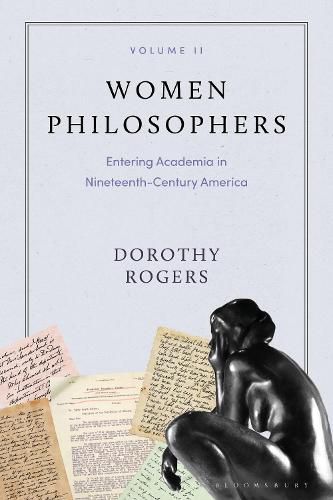Readings Newsletter
Become a Readings Member to make your shopping experience even easier.
Sign in or sign up for free!
You’re not far away from qualifying for FREE standard shipping within Australia
You’ve qualified for FREE standard shipping within Australia
The cart is loading…






Tackling the intellectual histories of the first twenty women to earn a PhD in philosophy in the United States, this book traces their career development and influence on American intellectual life. The case studies include Eliza Ritchie, Marietta Kies, Julia Gulliver, Anna Alice Cutler, Eliza Sunderland, and many more. Editor Dorothy Rogers looks at the factors that led these women to pursue careers in academic philosophy, examines the ideas they developed, and evaluates the impact they had on the academic and social worlds they inhabited.
Many of these women were active in professional academic circles, published in academic journals, and contributed to important philosophical discussions of the day: the question of free will, the nature of God in relation to self, and how to establish a just society. The most successful women earned their degrees at women-friendly institutions, yet a handful of them achieved professional distinction at institutions that refused to recognize their achievements at the time; John Hopkins and Harvard are notable examples.
The women who did not develop careers in academic philosophy often moved to careers in social welfare or education. Thus, whilst looking at the academic success of some, this book also examines the policies and practices that made it difficult or impossible for others to succeed.
$9.00 standard shipping within Australia
FREE standard shipping within Australia for orders over $100.00
Express & International shipping calculated at checkout
Tackling the intellectual histories of the first twenty women to earn a PhD in philosophy in the United States, this book traces their career development and influence on American intellectual life. The case studies include Eliza Ritchie, Marietta Kies, Julia Gulliver, Anna Alice Cutler, Eliza Sunderland, and many more. Editor Dorothy Rogers looks at the factors that led these women to pursue careers in academic philosophy, examines the ideas they developed, and evaluates the impact they had on the academic and social worlds they inhabited.
Many of these women were active in professional academic circles, published in academic journals, and contributed to important philosophical discussions of the day: the question of free will, the nature of God in relation to self, and how to establish a just society. The most successful women earned their degrees at women-friendly institutions, yet a handful of them achieved professional distinction at institutions that refused to recognize their achievements at the time; John Hopkins and Harvard are notable examples.
The women who did not develop careers in academic philosophy often moved to careers in social welfare or education. Thus, whilst looking at the academic success of some, this book also examines the policies and practices that made it difficult or impossible for others to succeed.